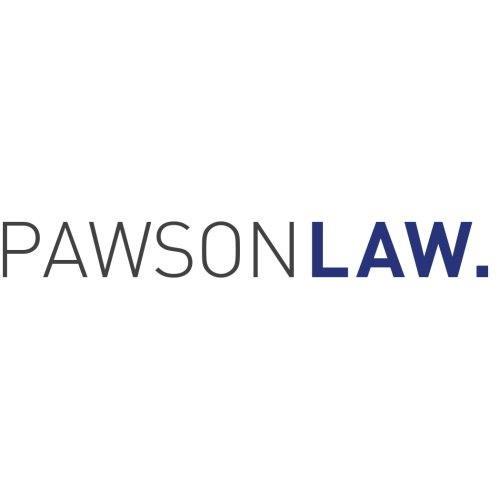Best Employment Benefits & Executive Compensation Lawyers in Tauranga
Share your needs with us, get contacted by law firms.
Free. Takes 2 min.
List of the best lawyers in Tauranga, New Zealand
About Employment Benefits & Executive Compensation Law in Tauranga, New Zealand
Employment Benefits & Executive Compensation law in Tauranga, New Zealand, deals with the extensive range of compensatory regulations and benefits entitled to employees and executives within their employment contracts. This area of law encompasses statutory benefits, such as holiday entitlements and sick leave, as well as complex compensation structures for executives, including bonuses and share options. The objective is to ensure fair treatment of workers while maintaining compliance with regional and national legislation. Tauranga's growing economy, driven by sectors such as agriculture, forestry, and logistics, has seen increased complexity in employment agreements necessitating specialized legal insights.
Why You May Need a Lawyer
There are numerous situations where legal guidance might be invaluable in dealing with Employment Benefits & Executive Compensation:
- Negotiating compensation packages for new executive positions or roles with critical responsibilities.
- Disputes over entitlements such as redundancy packages, bonus structures, or pension plans.
- Understanding and ensuring compliance with complex salary packaging options and fringe benefit tax implications.
- Interpreting the legalities around employee stock ownership plans.
- Handling legal challenges regarding alleged breaches of employment contracts or unfair dismissals.
- Ensuring equitable work conditions and benefits are offered to comply with regional laws.
Local Laws Overview
In Tauranga, employment laws regarding benefits and compensation are predominantly governed by New Zealand's national legislation, but local nuances and industry-specific conditions may apply. Key aspects include:
- Employment Relations Act 2000: Governs employment agreements and promotes productive employer-employee relationships.
- Holidays Act 2003: Covers employee entitlements to annual holidays, public holidays, and other leave.
- Minimum Wage Act 1983: Prescribes minimum wage rates applicable across Tauranga.
- KiwiSaver Act 2006: Manages retirement savings schemes that are employer-contributed.
- Human Rights Act 1993: Protects against discrimination in employment settings.
Frequently Asked Questions
What benefits am I legally entitled to as an employee in Tauranga?
Employees in Tauranga are entitled to minimum annual leave, public holidays, sick leave, bereavement leave, and parental leave under the Holidays Act 2003, alongside any entitlements specified in their employment contracts.
How is executive compensation typically structured?
Executive compensation may include base salary, performance bonuses, shares or stock options, and additional benefits such as health insurance. Each package is unique and should be reviewed within the context of employment law.
Can my employer change my compensation package?
Changes to a compensation package typically require mutual agreement between employer and employee unless specified otherwise in the employment contract.
What should I do if my employer is not honoring my contract?
If you believe your employer is not honoring your contract, consider seeking legal advice. The Employment Relations Authority can mediate disputes or guide you in further actions.
Are bonuses considered a legal entitlement?
Bonuses are generally not a legal entitlement unless explicitly stated in your employment contract or company policy.
How does the tax system affect my employment benefits?
New Zealand has specific tax rules regarding salary and benefits, including fringe benefit tax (FBT) on employer-provided perks. Legal advice can help optimize tax responsibility.
Is KiwiSaver mandatory for all employees?
No, KiwiSaver enrollment is voluntary, although employers must contribute to those who choose to participate unless exempted.
What recourse do I have if I face discrimination at work?
The Human Rights Act 1993 protects against discrimination, and complaints can be lodged with the Human Rights Commission for investigation and resolution.
How is redundancy compensation determined?
Redundancy compensation depends on the terms of your employment agreement and applicable legislation. Legal advice can clarify entitlements and processes.
What is a fair performance review process?
A fair performance review process is transparent, consistent, and documented, with an opportunity for feedback. It should align with the agreed parameters in your employment contract.
Additional Resources
For further assistance related to Employment Benefits & Executive Compensation, consider the following resources:
- Employment New Zealand: A government-provided resource offering advice and tools on employment rights.
- Citizens Advice Bureau (CAB) Tauranga: Provides free, confidential advice on workplace issues.
- KiwiSaver Information: Official information regarding New Zealand's retirement savings scheme.
- Institute of Directors New Zealand (IoD): Offers guidance on governance best practices, including executive compensation.
Next Steps
If you require legal assistance for Employment Benefits & Executive Compensation in Tauranga, consider taking the following steps:
- Gather all relevant employment documentation and correspondence.
- Identify the specific legal issue or query you have regarding your compensation or benefits.
- Reach out to a qualified employment lawyer specializing in benefits and executive compensation law.
- Discuss your circumstances and seek clarification on your legal rights and options.
- Consider mediation or dispute resolution services if applicable and recommended by your legal advisor.
- Stay informed of your rights and obligations under current employment laws and any changes that occur.
Lawzana helps you find the best lawyers and law firms in Tauranga through a curated and pre-screened list of qualified legal professionals. Our platform offers rankings and detailed profiles of attorneys and law firms, allowing you to compare based on practice areas, including Employment Benefits & Executive Compensation, experience, and client feedback.
Each profile includes a description of the firm's areas of practice, client reviews, team members and partners, year of establishment, spoken languages, office locations, contact information, social media presence, and any published articles or resources. Most firms on our platform speak English and are experienced in both local and international legal matters.
Get a quote from top-rated law firms in Tauranga, New Zealand — quickly, securely, and without unnecessary hassle.
Disclaimer:
The information provided on this page is for general informational purposes only and does not constitute legal advice. While we strive to ensure the accuracy and relevance of the content, legal information may change over time, and interpretations of the law can vary. You should always consult with a qualified legal professional for advice specific to your situation.
We disclaim all liability for actions taken or not taken based on the content of this page. If you believe any information is incorrect or outdated, please contact us, and we will review and update it where appropriate.

















